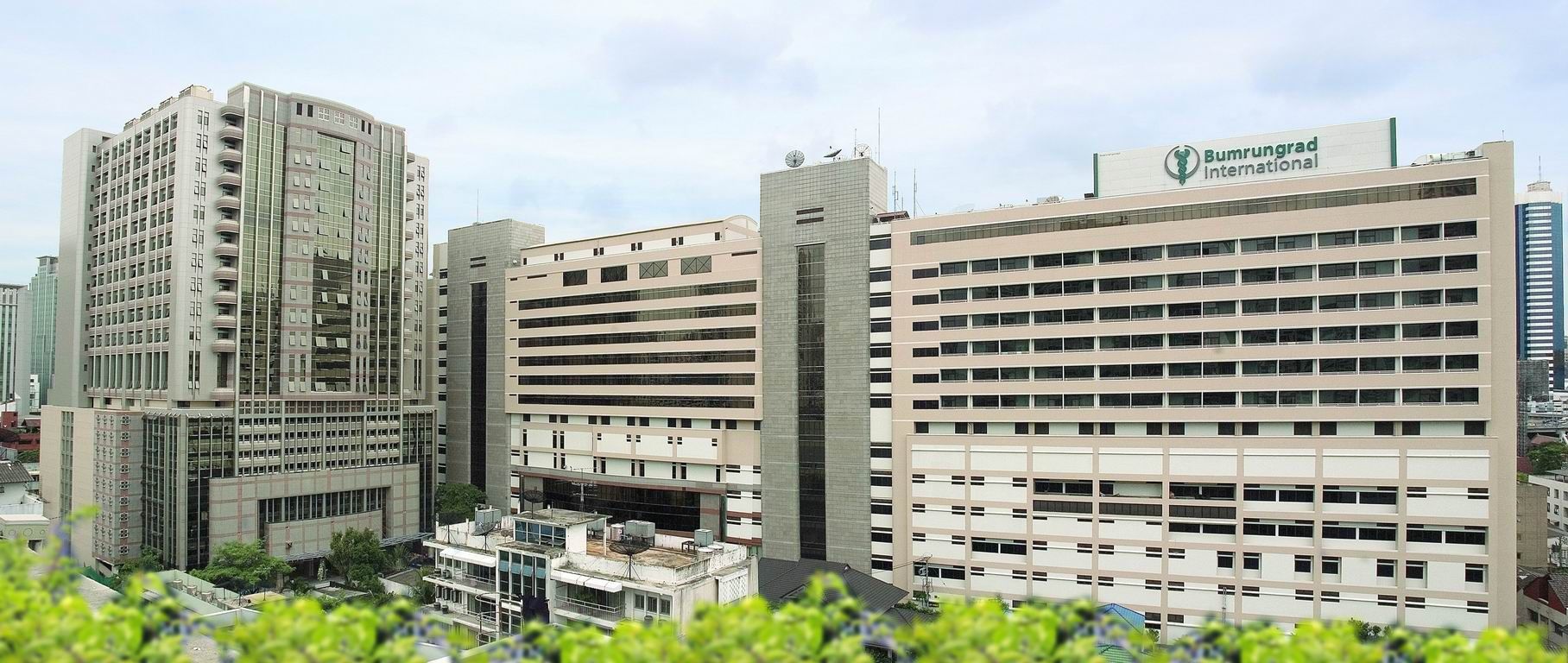General Surgery
Psoas abscess
Psoas abscess
Psoas abscess is a rare infection causing pus accumulation in the psoas muscle, leading to back and abdominal pain, fever, and difficulty walking. Early diagnosis and drainage are crucial for recovery.
Psoas abscess treatment in India
A psoas abscess is an accumulation of pus within the psoas muscle, which is deep in the abdomen near the spine, kidneys, and hip. It can be primary (due to bloodstream infection) or secondary (due to infections occurring close by such as spinal tuberculosis, Crohn's disease, or kidney infection).
Treatment
- Treatment is based on size, cause, and severity.
Antibiotic Therapy
- Initial empiric antibiotics: Cover Staphylococcus aureus (most common) and Gram-negative bacteria.
Examples:
- IV vancomycin + ceftriaxone or cefepime
- Adjust based on culture results
- Duration: Typically 2–6 weeks based on severity and response
Drainage
- Percutaneous (needle) drainage – if abscess is accessible
- Directed by CT or ultrasound
- Shorter recovery, minimally invasive
Surgical drainage – if:
- Abscess is large or multiloculated
- Not accessible percutaneously
- Associated with underlying disease needing surgery (such as bowel perforation)
Supportive Care
- Control of pain
- Hydration and nutrition
- Manage underlying conditions (e.g., spinal TB, Crohn's disease)
Follow-up
- Repeat imaging to confirm resolution of abscess
- Monitor labs (WBC, CRP)
- Dose antibiotics accordingly
Factors Affecting Psoas abscess surgery cost India
The expense of psoas abscess surgery in India depends largely on various factors. The following are the major factors affecting the overall cost:
Hospital Type and Location
- Private Hospitals: High-end private hospitals, particularly in major cities such as Delhi, Mumbai, and Bangalore, charge more owing to premium infrastructure and specialized treatment.
- Government Hospitals: Government hospitals can provide cheaper treatment, usually at subsidized prices, but possibly longer wait times and uncertain standards of amenities.
Surgeon's Expertise
- Well-known surgeons with ample experience and specialization for high-level procedures can charge higher fees than general surgeons.
Diagnostic and Preoperative Tests
- Extensive diagnostic tests such as imaging studies and blood tests and cultures are necessary for proper diagnosis and planning.
- The expense of these procedures may contribute to the overall cost, depending on hospital and test complexity.
Type of Procedure
- Percutaneous Drainage: Less invasive with quicker recovery, typically less costly.
- Open Surgical Drainage: Possibly needed for large or complex abscesses, with greater expense due to longer hospitalization and more comprehensive care.
Hospital Stay and Postoperative Care
- Hospital stay, room category (private vs. general ward), and intensive monitoring requirements may all affect expenses.
- Medications, follow-up, and rehabilitation in the postoperative period all add to the overall cost.
Best hospital for psoas abscess India
- Artemis Hospital, Gurgaon
- Medanta-The Medicity, Gurgaon
- Fortis Memorial Research Institute, Gurgaon
- Max Hospital, Saket
Percutaneous drainage of psoas abscess India
Percutaneous drainage is a minimally invasive technique with the needle or catheter placed through the skin to drain pus from the psoas muscle. It is CT scan or ultrasound-guided to allow precise placement. It is usually preferred to open surgery for accessible abscesses due to reduction in recovery time, hospital stay, and surgical risk.
Indications
- Abscess is well-localized and accessible
- No extensive surrounding infection or multiloculated abscess that requires open surgery
- Patient is medically stable for minimally invasive procedure
- Generally applied in primary or secondary psoas abscesses without complicating elements
Procedure Steps
- Imaging Guidance: CT or ultrasound is employed to accurately site the abscess.
- Local Anaesthesia & Sedation: Local anaesthesia with sedation is usually adequate.
- Needle Insertion: A thin needle is passed through the skin into the abscess cavity.
- Aspiration: Pus is aspirated for microbiological culture.
- Catheter Insertion: A tiny catheter (drain) can be left inside to drain pus continuously for a few days.
- Observation: Catheter drainage is checked, and imaging may be done again to confirm complete drainage.
Benefits
- Minimal invasion: Fewer traumas compared to open operation
- Shorter hospitalization and recovery
- Fewer chances of complications such as bleeding or infection
- Can be repeated if the abscess recurs
Psoas abscess diagnosis and symptoms India
Symptoms of psoas abscess are sometimes vague or nonspecific and, therefore, delay diagnosis. Some of the common signs are:
Classic Triad (in 30% cases only)
- Fever – low-grade but can be high at times
- Back or flank pain – there is referred pain to the hip or groin
- Limp or gait difficulty – due to irritation of the psoas muscle
Other Symptoms
- Abdominal pain, particularly lower abdomen
- Loss of appetite and weight loss
- Night sweats (frequent in abscess due to tuberculosis)
- Palpable mass in the lower abdomen (rare)
- Pain on extension of hip (positive psoas sign)
Diagnosis
- Early diagnosis is important to avoid sepsis or dissemination of infection.
Laboratory Tests
- Blood tests: Raised WBC, ESR, and CRP
- Blood culture: Reveals causative organism (Staphylococcus aureus is most prevalent in India; TB is also a common cause in endemic regions)
Imaging
- CT scan: Most sensitive; reveals size, location, and distribution of abscess
- Ultrasound: Helpful for the detection of fluid accumulation, particularly in resource-poor settings
- MRI: Assists in detection of related spinal infections or complicated abscesses
Microbiological Investigations
- Pus aspiration from percutaneous drainage for Gram stain, culture, and sensitivity
- PCR or GeneXpert if suspected of having tuberculous psoas abscess
Psoas abscess specialist doctor India
Conclusion
Psoas abscess is an uncommon but potentially life-threatening infection of the psoas muscle. Prompt recognition is important, as symptoms are frequently nonspecific and may involve fever, back or flank pain, and impaired gait. With prompt treatment, outcome usually is favorable. In delayed cases, sepsis, recurrence, or chronic infection may occur. In India, one needs to consider tuberculosis as a frequent underlying cause in secondary psoas abscesses.
Psoas abscess treatment in India with GetWellGo
GetWellGo is regarded as a leading supplier of healthcare services. We help our foreign clients choose the best treatment locations that suit their needs both financially and medically.
We offer:
- Complete transparency
- Fair costs.
- 24 hour availability.
- Medical E-visas
- Online consultation from recognized Indian experts.
- Assistance in selecting India's top hospitals for Psoas abscess treatment.
- Expert general surgeon with a strong track record of success
- Assistance during and after the course of treatment.
- Language Support
- Travel and Accommodation Services
- Case manager assigned to every patient to provide seamless support in and out of the hospital like appointment booking
- Local SIM Cards
- Currency Exchange
- Arranging Patient’s local food
FAQ
How long does recovery take?
- Hospital stay: Typically 3–7 days for percutaneous drainage
- Complete recovery: 1–2 weeks in non-complicated cases
- Follow-up imaging can be required to verify complete resolution
Is psoas abscess preventable?
- Early treatment of infections, particularly spinal, kidney, or bowel infections
- Effective treatment of tuberculosis
- Good hygiene and health consciousness in endemic regions
TREATMENT-RELATED QUESTIONS
GetWellGo will provide you end-to-end guidance and assistance and that will include finding relevant and the best doctors for you in India.
A relationship manager from GetWellGo will be assigned to you who will prepare your case, share with multiple doctors and hospitals and get back to you with a treatment plan, cost of treatment and other useful information. The relationship manager will take care of all details related to your visit and successful return & recovery.
Yes, if you wish GetWellGo can assist you in getting your appointments fixed with multiple doctors and hospitals, which will assist you in getting the second opinion and will help you in cost comparison as well.
Yes, our professional medical team will help you in getting the estimated cost for the treatment. The cost as you may be aware depends on the medical condition, the choice of treatment, the type of room opted for etc. All your medical history and essential treatment details would be analyzed by the team of experts in the hospitals. They will also provide you with the various types of rooms/accommodation packages available and you have to make the selection. Charges are likely to vary by the type of room you take.
You have to check with your health insurance provider for the details.
The price that you get from GetWellGo is directly from the hospital, it is also discounted and lowest possible in most cases. We help you in getting the best price possible.
No, we don't charge patients for any service or convenience fee. All healthcare services GetWellGo provide are free of cost.
Top Doctors for General Surgery
Top Hospitals for General Surgery
Contact Us Now!
Fill the form below to get in touch with our experts.







